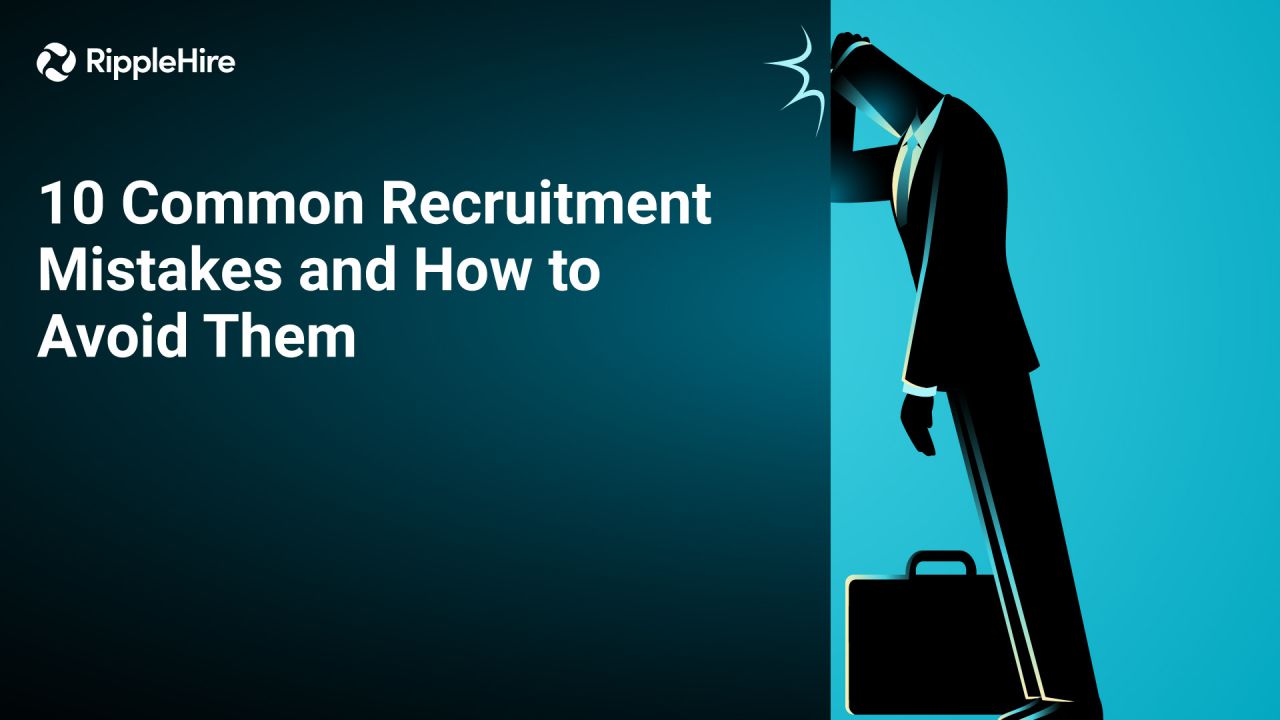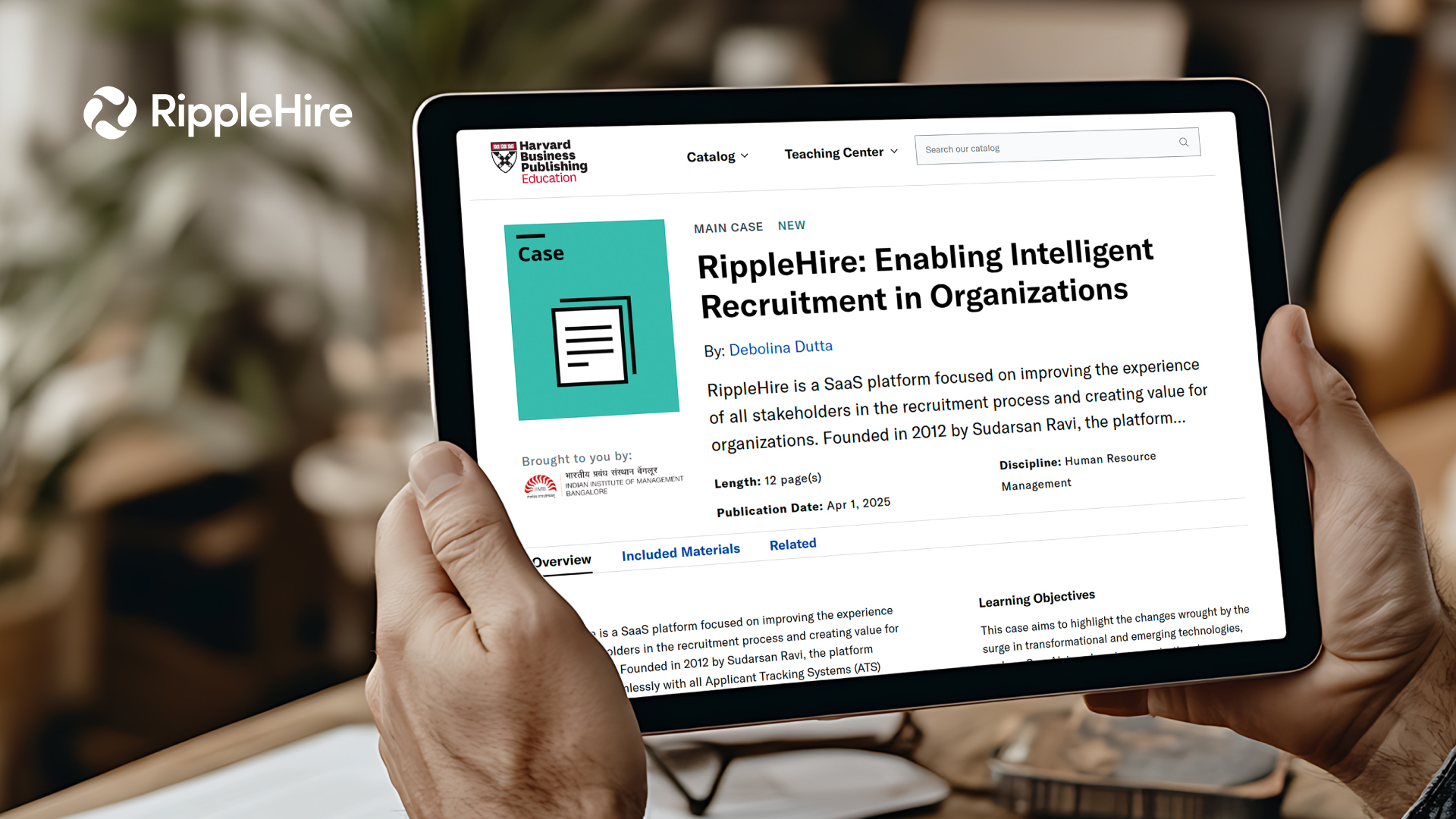When was the last time you watched an employee hired by you walking out abruptly on the company, or even worse, getting fired? Not very long ago, right? Were you made to feel accountable and criticized by your higher-ups for the poor hiring decision made by you, or least embarrassed in a forum?
The cost of a bad hire can reach up to 30 percent of the employee’s first-year earnings. Not to mention the endless managerial hours and duress of having to monitor their work and behavior. Getting good results from a bad hire is simply not the kind of challenge that managers want thrown their way, given its toxic nature.
Here we have listed the top 10 most common recruitment mistakes, and how you can avoid them.
-
1. Posting unclear job descriptions
If a job description is vague or inaccurate, the candidate has already been misled. They are thinking of a different working experience than what the job will provide.
You need to ensure that the job description is clear and concise, capable of attracting skilled candidates, and also realistic in terms of what kind of work experience is on offer. -
2. Not recruiting internally
Sure, the chances of finding the right fit for the job through internal recruitment are probably evaluated before the job opening is posted externally. But it always makes sense to look internally first, given that the existing employees who are doing well are probably a great professional fit already.
One major factor to consider is the cost of internal movement in terms of replacing the reallocated employee. - Here’s a good guide on Why Referrals should be a core part of your talent acquisition strategy?
-
3. Judging based on the CV alone
Having an impressive CV on paper does not automatically mean that the candidate will do well at the job. Every experienced recruiter knows that candidates with even the best of resumes turn out to be poor hiring decisions ever so often, and the candidates with not so great resumes prove to be great hires.
So use the CV only as the starting point for matching the skills required. If there is a skill-match, then it’s a good idea to proceed with the usual questioning to determine whether the candidate will do well on the job or not. Of course, credentials matter, but you should not be swept away by them and end up failing to assess the real value the candidate will bring. -
4. Asking the same old interviewing questions
If you ask the same questions such as, “How well does money motivate you?” or “What is your biggest weakness?” you are going to get well-rehearsed answers delivered in a highly convincing manner. Avoid this pitfall by asking pointed questions according to what they claim in their resume and let the questioning build gradually. It’s an interviewing skill that you need to develop as a recruiter, if you want great hiring decisions to your credit.
-
5. Putting the gut feeling over objective judgment
Sometimes a candidate seems very genuine and bright. Your gut tells you to select her. Yet your mind says otherwise. You need to reason this out. Always better to go by the facts and the answers given by the candidate.
Do your reference checks, but do not be over reliant on them either. Because every now and then, the references given are probably those who have the candidate in their good books anyhow. -
6. Being suspicious of overqualified candidates
There has been a sudden rise in unemployment during the pandemic, so the job market has quite a few overqualified candidates looking for work. Resist the urge to reject them due to being overqualified or overage.
There is a high likelihood that if selected subject to doing well in the interview, not only will they do a good job, but they will also be grateful and very loyal to the company that gave them an opportunity during tough times.
-
7. Offering compensation that is too low
If you find a skilled worker for a rather low pay package, you are probably considering it a win. But you will soon find that the person is not giving her best. This is because she cannot realistically be motivated or led into believing that she is being treated fairly. Chances are, such an employee accepted the low package due to lack of options at that point in time. But she will either become too difficult to motivate, or will quit rather soon because of feeling undervalued.
Compensate them as per the industry standards so that you don’t run into motivation issues and attrition simply because of compensating poorly. -
8. Being overly concerned about culture fit
Ordinarily, a good culture fit is essential, but these are extraordinary times. In this era of remote work, the need to hire a great culture fit is not that much. Because, most employees neither come face to face frequently enough to indulge in toxic gossip nor do they have the time since they are already trying to achieve the work-life balance.
So look for commitment and obedience, along with competence and you will have a great hire who will work wonders for the company’s progress. Besides, you need to mitigate the risk of losses from waiting too long for the perfect candidate. So don’t lose time looking for them and be decisive in this regard. -
9. Exaggerating growth prospects to the candidate
As a recruiter, you feel obliged to sell the merits of your company to great candidates, but this needs to be done with caution. In your eagerness, if you paint a more rosy picture than the reality, then the new hire will soon feel as if she has been fooled into joining your company.
Give them an accurate picture of what kind of growth prospects are there and how you engage your employees and keep them happy even if the growth is not vertical. Most employees will settle for lateral growth and other rewards, as long as they have not been promised the moon. -
10. Not setting clear expectations during induction
Most times, recruiters are so excited to have landed the right candidate that they forget the fact that it’s just the beginning. If you forget to induct them properly, the employee might make behavioral mistakes that will require serious remedies.
Setting clear expectations about matters like the required work ethics, and the company’s policies is extremely critical to ensuring that the employee works with an uncluttered mind, knowing what to do and what not to do.
Wrapping Up
What we have covered in this blog are the top 10 recruitment mistakes with tips to avoid them. However, there is no foolproof formula to make perfect decisions, because the perfect candidates don’t exist either.
But the good news is that you can avoid these situations rather easily in the future from being frequent. With a little bit of practice, you too can become a champion recruiter whose hires not only contribute to the company’s success consistently, but also improve the company’s image by making it a great place to work at.






